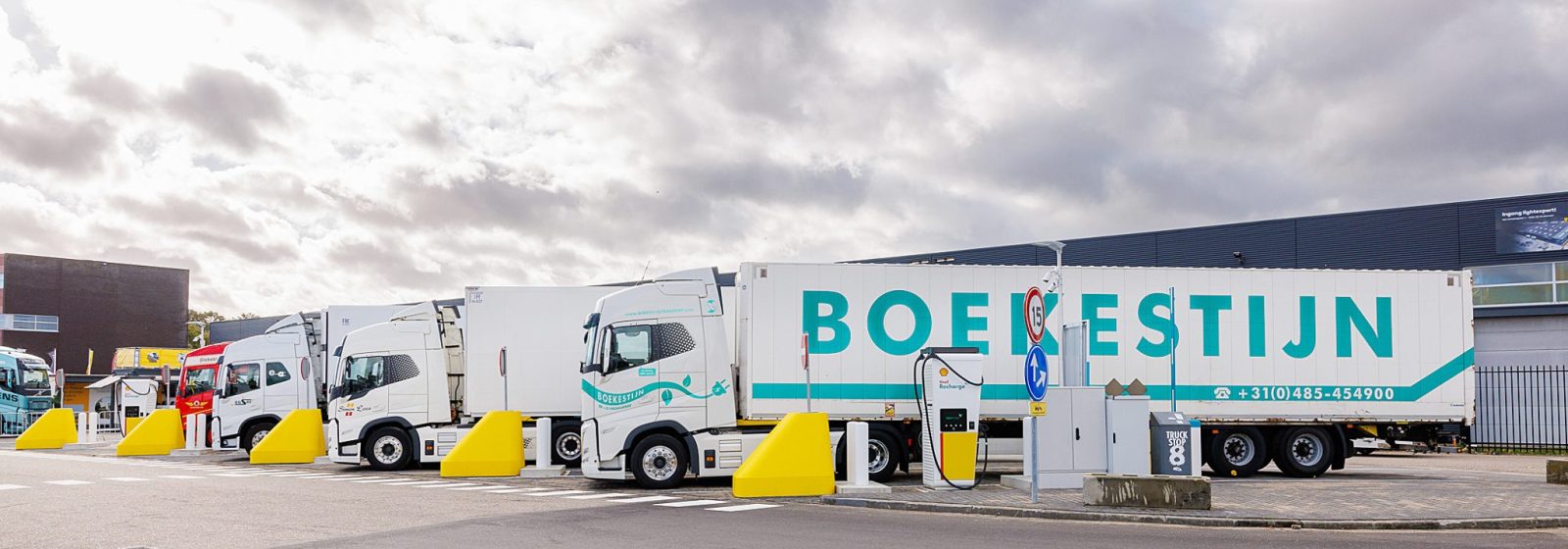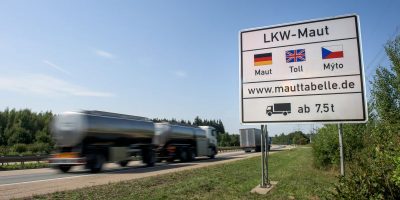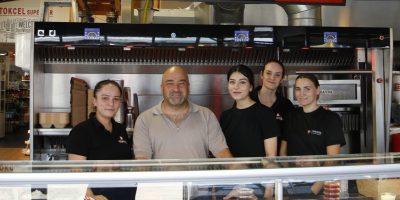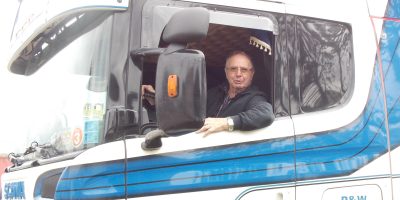
How can road transport best become emissions-free? Fuel supplier Shell has some ideas on that. “For those who want to take quick steps to reduce emissions, renewable and bio fuels are increasingly available,” says Janine Albrecht Webb, head of Commercial Road Transport (CRT) at Shell. The energy company is helping the road transport sector make choices that will ensure road transport has net zero emissions by 2050.
In this contribution from Shell, the company talks about decarbonising heavy road transport. “In the Netherlands, about half of all goods are transported by truck,” says Albrecht Webb. “The road transport sector accounts for 9% of CO2 emissions worldwide, more than air and sea freight combined, according to research by Deloitte. The sector will have grown significantly by 2050 and will also have to decarbonise in the meantime. These years, we will have to push forward to meet our targets,” says the CRT chief.
Road transport sees itself facing three major challenges. First, the magnitude of the task of becoming completely emission-free. This includes, challenge number two, laws and regulations. Third are the costs. “A lot of long-term investments are needed, both at our customers and at Shell, including in new vehicles and in the infrastructure needed for charging and refuelling.”
Shell is keen to be a key partner for road transport to take the necessary steps in the transition to zero emissions. “We have more than 60 years of experience supporting our customers in their journey to net zero. We have over 30,000 customers worldwide who collectively operate 1 million trucks and over 100,000 road refuelling locations. In addition, we have a fleet of 3,000 trucks ourselves. We understand better than anyone that working towards a sustainable fleet is now crucial.”
Bespoke
The partnership between Shell and transport companies includes the energy company helping to identify needs and opportunities and to pick the best options. “How many kilometres do you drive and at what times of the day? What are the possibilities at your own location in terms of electrification, for example? It’s really tailor-made. We do this customer by customer. This is how we hope to accelerate the transition.”
Fuel choices in road transport are often made on the basis of cost. To avoid getting squeezed as a haulier when the prices of a particular fuel fluctuate sharply, Albrecht Webb advises taking out very clear fuel clauses.
“For example, when the Ukraine war started, lng prices flew up. What we saw with our clients at that time is that some switched from monthly to weekly or even daily clauses. This is especially useful in a market where prices are rising. It is best to have a diesel clause for diesel trucks, an lng clause for lng trucks and a kWh clause for EV trucks.”
The use of biofuels is currently more costly than fossil fuels. When does Albrecht Webb expect the tipping point? “I cannot name a year, but we are definitely seeing an increase in the use of bio- and renewable fuels. Without changes to the current vehicle fleet, there are already big steps to be taken here to get emissions down. We hope that legislation will contribute to the use of lower-emission fuel. It is a question of supply and demand. All parties in the chain are needed in this regard.”
In addition to traditional fossil fuels, Shell offers lng, bio-lng, renewable diesel, hydrogen and both public and private electric charging, among others. “It’s a mosaic of possibilities,” says Albrecht Webb. According to her, there is ample supply of these new fuels. “And the availability will only increase further. Again, this is a question of supply and demand. You can’t expect all trucks to be zero-emission overnight, which is precisely why these transition fuels are so important now.”
Albrecht Webb predicts that hydrogen will be an important fuel for road transport in the future. Shell is building a plant to produce green hydrogen in the Rotterdam port area, among other places. “The trucks are expensive now and the infrastructure to refuel is under construction. When the so-called ‘total cost of ownership’ goes down, hydrogen for road transport will also play a role, also because this fuel is completely emission-free.”
Charging plazas
Although the market for electric trucks is accelerating due to EU legislation such as AFIR and CO2 standards for truck manufacturers, grid congestion remains a challenge in the short term. Albrecht Webb sees solutions in both private and public infrastructure for over a thousand Dutch trucks sold in 2023.
For customers themselves, Shell is developing tailor-made private charging plazas (eDepots) across Europe, with infrastructure growing in line with available grid capacity, the growing electric fleet and falling total cost of ownership, while battery solutions, solar panels and energy management systems minimise grid congestion.
At the same time, Europe’s growing public fast-charging network with a booking system together with dynamic pricing and flexible energy contracts available in the near future should play a major role in managing grid congestion. Albrecht Webb: “Shell is one of the few players concretely committed to an electric ecosystem where all these components work together seamlessly, to make road transport more sustainable while customers remain focused on their core operations.”




